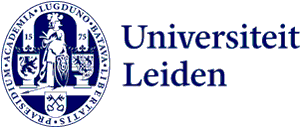
Court deems unacceptable behaviour by professor likely, ruling on dismissal request postponed
It is sufficiently plausible that the professor from the Faculty of Archaeology exhibited the ‘inappropriate and unacceptable behaviour’ detailed in the advice of the investigating committee. That is is unless the professor provides counter-evidence. This is the conclusion of the Subdistrict Court of Amsterdam in an interim decision issued on 20 November. The judge has also determined that the professor violated academic integrity.
The Executive Board of Leiden University filed a lawsuit because it wishes to dismiss a professor from the Faculty of Archaeology because of serious and prolonged transgressive behaviour and violation of academic integrity.
The professor was accused of this by 19 notifiers [Dutch melder, one who formally asks for attention to be given to a matter of concern] who gave detailed statements about this to the investigating committee, which in turn issued advice to the university’s Executive Board.
Decision postponed
However, the judge’s decision about the professor’s dismissal, as requested by the university, has been postponed because the professor has been given the opportunity to submit counter-evidence relating to the transgressive behaviour. After all, these are ‘very serious accusations’, said the judge. The judge has also asked the university to submit financial data so the judge can gain more insight into the financial implications of the termination of the employment contract.
Investigating committee meticulous
The judge is of the opinion that the independent investigating committee that investigated the accusations made by the notifiers conducted a thorough investigation and ‘meticulously’ presented its findings in its advice to the Executive Board. According to the judge, it is ‘sufficiently plausible’ that the professor exhibited the transgressive behaviour detailed in the committee’s advice to the Executive Board. ‘Nor can it be tolerated’, said the Subdistrict Court of Amsterdam in an interim decision on 20 November. The judge also states that both sides had sufficient possibility to exercise their right to be heard.
Violation of academic integrity
According to the judge, it was also sufficiently demonstrated that the professor violated academic integrity. It has been established that the professor carried out fieldwork without a permit, the judge says in the interim decision. In addition, teeth were extracted from human remains without the required permit. This has not been denied by the professor and has thus also been established, says the judge.
Role of the university
In her interim decision, the judge states that in the further judgment she will consider that blame can also be apportioned to the university. The university, says the judge, neglected ‘to monitor the behaviour of assistant, associate and full professors, who, out of the university’s sight, had vulnerable students and PhD candidates carry out fieldwork’.
The university also made it possible for a small faculty to be ‘managed in an entirely unique way’ by a few professors or lecturers. ‘No control whatsoever was exercised on behaviour that was not tolerated in a more distant past either. Action should have been taken much sooner.’ Conversely, said the judge, the professor repeatedly received confirmation that she was performing well and was exceptionally important to the university. This will be taken into account in the ruling, said the judge.
Procedure
In her decision the judge states that additional documents from the professor and the university have to be submitted by 20 December at the latest. The sub-district court will then examine these and decide on the further procedure.
Response from the Executive Board
The university is satisfied with the interim decision. On behalf of the Executive Board, its President, Annetje Ottow, said the following, ‘For us the main accusations against the professor – the transgressive behaviour and the violation of academic integrity – have been found by the judge to be sufficiently plausible. And the investigating committee was meticulous in its work. The judge reproaches us for our role: action should have been taken sooner. We take that to heart and will learn from it. We are going to submit the documents requested by the judge and await the decision with confidence.
